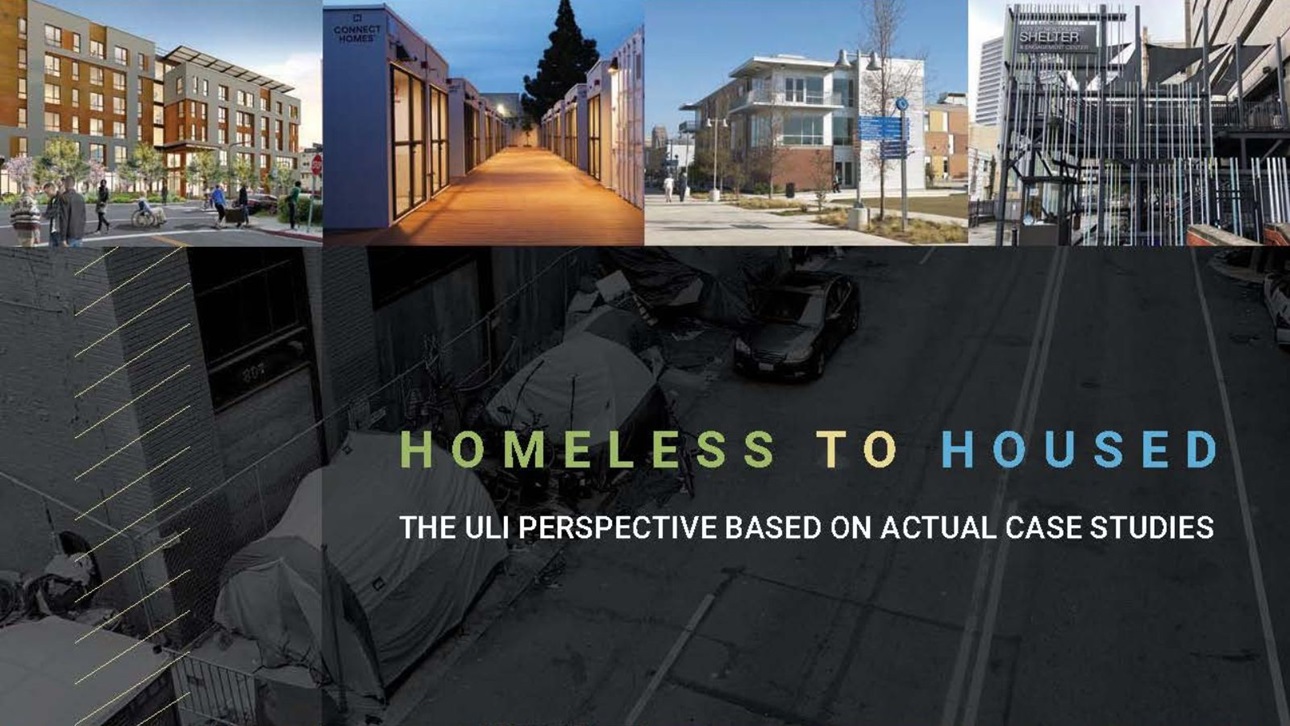Homeless to Housed: The ULI Perspective - 2022

The ULI Perspective Based on Actual Case Studies
Report Summary:
Report Summary: This report explores the role the real estate community can play in addressing the issue of homelessness. It includes a summary of lessons learned, a blueprint for how to replicate best practices in U.S. communities, and a series of case studies that demonstrate how the development community can be an active partner in addressing the critical shortage of housing in the United States.
RELATED
Report
Pairing Housing + Transportation to Uplift Communities Across San Antonio
With support from the Homeless to Housed initiative, ULI San Antonio and its partner, Local Initiative Support Corporation–San Antonio (LISC), embarked on a Homeless to Housed journey to enhance education around the range of housing types San Antonia...
Report
Homeless to Housed Annual Report
The 2023-2024 ULI Homeless to Housed Annual Report: Exploring Real Estate Solutions highlights the work completed in phase one of ULI's Homeless to Housed (H2H) initiative. This report explores key lessons learned that will guide H2H's continued effo...
Webinar
ULI Toronto: Homeless to Housed: Case Studies from the U.S.
The real estate community has the ability to address the growing crisis of homelessness. A recent ULI report showcases U.S. case studies that address the needs of local unhoused populations. These eight projects offer a series of replicable lessons a...
Topics
Centers and Initiatives


